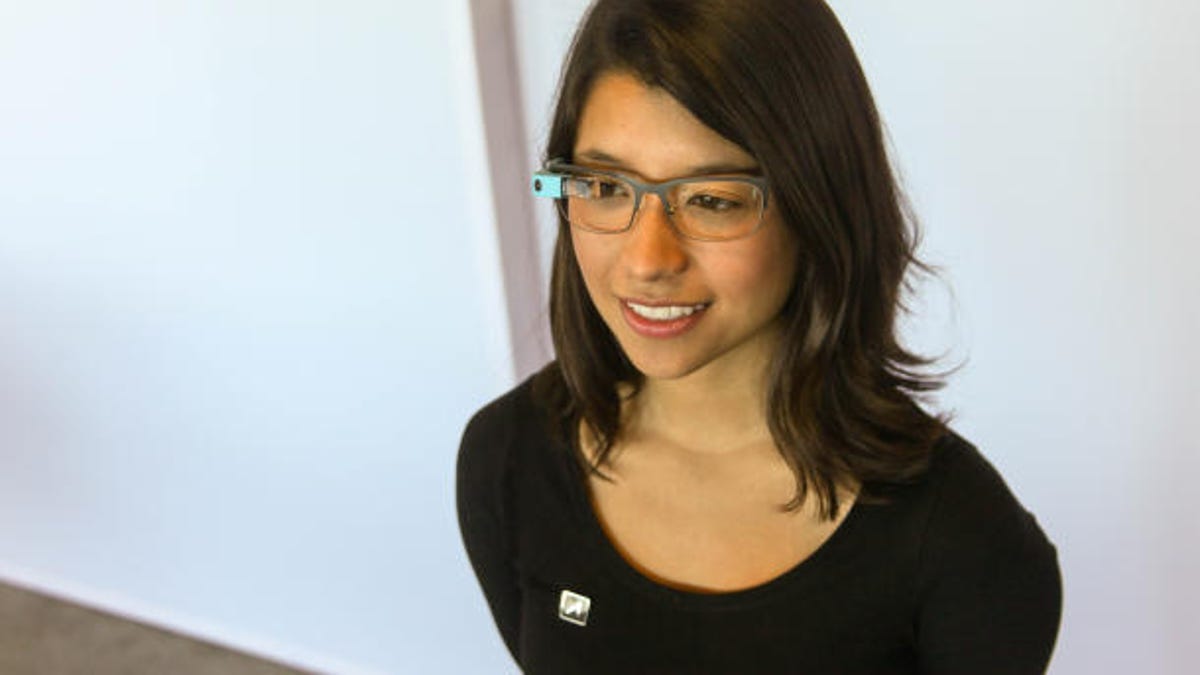Google fighting to stop anti-Glass driving laws, says report
The company is lobbying in at least three states to prevent Glass from being labeled legally as a driving distraction, Reuters says.

It's not been the finest period for Google Glass.
A product that came with an intelligent launch and inspired much fascination has, unfortunately for Google, allowed some people to also consider its consequences.
Who would want to be secretly filmed in bars or bordellos? Who would want to look like a borg not called Bjorn?
And who would want to allow people to drive while their Google Glass is constantly informing them of the latest about their BFF's night with an alleged Chippendale?
Very early on in the life of Glass, legislators in West Virginia mulled banning driving while Glassing. They ran into procedural issues, but they've promised to revisit the matter.
Soon, other states were wondering whether the device offered a threat to road safety. One police officer in San Diego was convinced that wearing them was a case of distracted driving, until a court heard he couldn't prove whether the glasses were switched on.
Now Reuters is reporting that Google is lobbying in at least three states -- Illinois, Delaware, and Missouri -- to cool the nerves of legislators.
It seems the thrust of Google's argument is: "What's the panic? They're not even widely available to the public yet."
To this, Illinois state Senator Ira Silverstein told Reuters that it's clear Glass is supposed to make the whole world goggle with glee as soon as possible, adding: "Who are they fooling?"
Silverstein says he was visited by a Google lobbyist after he introduced a bill in December to restrict the use of Glass. Reuters says the lobbyist himself was mum about any such alleged meeting.
It's easy to see why lawmakers might think Glass is a distraction. A small consideration of any of the screens inserted into newer cars shows that people will poke them and prod them, just because they're there.
How can information being flashed before your eyes not avert the attention at least minimally?
However, I asked one Explorer who has already driven many miles wearing Glass what it was like.
Chris Barrett, who has now curtailed his use of Glass because of headaches, told me: "In 2013, I drove over 2,500 miles wearing Google Glass, and I know for a fact that Google Glass will save lives."
He said it's a lot safer than people who stare down at their phone screens at every opportunity. He believes that there will soon be a Google Glass Car Mode.
"I imagine this as a mode that only lets important notifications come through while you are driving. You could set your partner as a priority to have their calls or texts come through while you are driving. The messages could be read to you, but when you pull up to a stop you could see that your boss who was not on your car mode priority list also sent you a text," he told me.
Oh, but priorities change. Do you really want to have to think about who might be contacting you while you're on a pleasant drive with your married lover?
For its part, Google admits to having talked with lawmakers. The company believes it needs to educate them. While we'd all love to do that on one subject or another, Google always exudes the sense that it knows better.
A company spokesman told me: "Technology issues are a big part of the current policy discussion in individual states. We think it is important to be part of that discussion and to help policymakers understand new technologies including Glass. Glass is currently in the hands of a small group of Explorers, but we find that when people try it for themselves they realize that Glass is not meant to distract but rather connect you more with the world around you."
Some might argue that Glass is meant to connect you more with Google. Quite innocently, of course.
Still, sources familiar with Google's enthusiasm for Glass tell me the company has already created 14 software updates and 3 hardware updates as it readies the product for the real world.
It's clear Google is constantly getting feedback from its Explorers on how the device performs in the wild.
There is nothing wilder, though, than the world of lobbying.
Will lawmakers wait to be "educated"? Or will they want to be the first to place an anti-technology provision into law? They do have egos, politicians.

